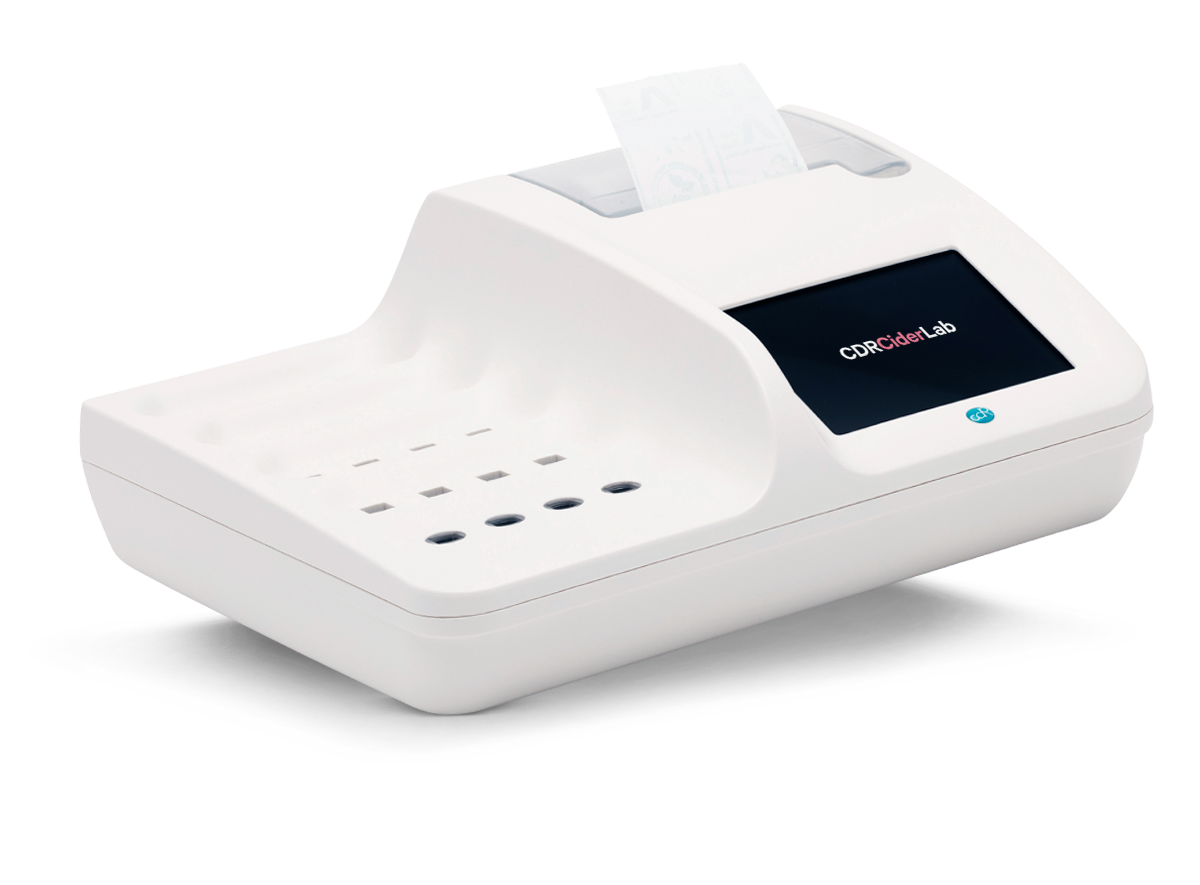Determination of the Acetic acid in cider
Acetic acid, often referred to volatile acidity, can be produced by several yeasts and bacteria present in cider. It may form during fermentation, secondary product, or during storage due to the deterioration of finished cider.
Method
Test type: End Point.
Testing time: 6 minutes.
Are possible test sessions with several samples, up to 4 for CDR CiderLab and 3 tests for CDR CiderLab Junior.
...
Sample treatment
If necessary, the sample shall be degassed using the specific ultrasonic bath (code 222062). In case of tests performed on must, the sample shall be centrifuged (code 222061) or filtered (code 300210).
Principle of the test
Through an enzymatic reaction, acetic acid is converted into piruvic acid, which reacts with NADH producing NAD+ and D-Lactic acid. The reduction of absorbance, measured at 366 nm (end-point), of the NADH solution is proportional to the quantity of acetic acid present in the sample.
...
Calibration curve
The calibration curve of CDR CiderLab, obtained using reference methods, confirms the excellent linearity of the system over the whole testing range.
...
Reagent test Kits
Code*300360: 10 tests
Measuring range
| Analyses | Measuring range | Resolution | Repeatability |
|---|---|---|---|
| Acetic acid [0.05-1.2] g/L | 0.05 - 1.2 g/L Acetic acid | 0.01 g/L Acetic acid | 0.06 g/L Acetic acid |
The Analyzers for process and quality control in cider production
CDR CiderLab
Complete analysis panel, supplied already configured
Up to 16 determinations simultaneously
Possibility of carrying out analyses of the same sample
Integrated printer
Full connections (LAN - USB - Bluetooth barcode/QR code reader)
CDR CiderLab Jr
Partial analysis panel, customisable configuration
Up to 3 determinations simultaneously
Wireless connection to external printer
USB connections
